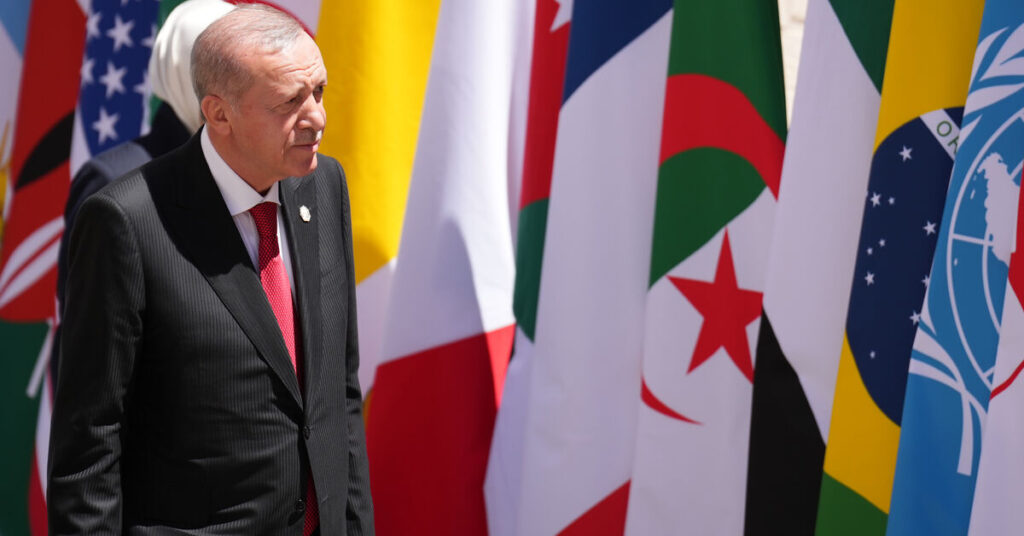Turkey’s recent engagement with the BRICS group of nations and the Shanghai Cooperation Organization (SCO) does not pose an immediate risk to its relations with the West.
Turkey’s Foreign Minister Hakan Fidan’s recent trips to China and Russia sparked conversation on Turkey’s potential inclusion in BRICS. Vladimir Putin, President of Russia, expressed full support for Turkey’s aspiration to join the grouping on Tuesday. However, in an interview published on Wednesday, US Ambassador to Turkey Jeff Flake said he hoped Turkey would not join BRICS.
This increased focus on BRICS by Ankara has led to speculation about whether Turkey is distancing itself from the West. These instances coincided with Putin’s announcement about the possible attendance of Turkish President Recep Tayyip Erdogan at an approaching SCO summit in Kazakhstan. The Turkish president has previously expressed an interest in joining both the China-led bodies.
Founded in 2009 by Brazil, Russia, India, China, and South Africa, BRICS was initially established as a group to explore alternatives to the US dollar as a reserve currency after the economic downturn spurred by America’s housing and stock market crises. Concurrently, the relationship between western countries and Russia and China has deteriorated. As a result, BRICS is now seen as a potential counterpart to the EU and G7, the grouping of the world’s leading industrial economies lead by the US, and including Canada, France, Germany, Italy, Japan, and the United Kingdom.
The Shanghai Cooperation Organization, or the “Shanghai Five,” constitutes China, India, Iran, Kazakhstan, Kyrgyzstan, Pakistan, Russia, Tajikistan, and Uzbekistan. It seeks to promote mutual cooperation among its members in economic, trade, and security matters.
